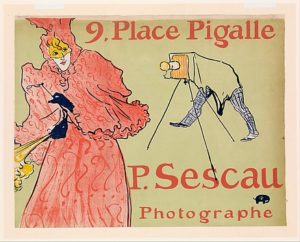Judge Pamela K. Chen from the Eastern District Court of New York dismissed on July 18 a copyright infringement suit filed by XClusive-Lee, Inc. against supermodel Gigi Hadid, claiming that a picture she posted on her Instagram account was infringing.
Hadid’s Instagram account currently has almost 49 million followers, interested in viewing family pictures, fashion magazines cover featuring Hadid, fashion shoots and fashion photographs. Hadid posted in October 2018 a cropped version of a photograph of her taken the day before by a paparazzi outside Vogue’s Force of Fashion conference, where Hadid was part of a panel.
The original version of the photograph showed Defendant wearing a denim jacket and shorts, a small handbag, high heels, jewelry and make up, smiling at the camera in an outdoor urban setting, probably outside the New York City studio where the conference took place.
The photo posted by Hadid on social media was cropped mid-thigh. She added as comment:”all smiles post #ForceOfFashionpanel @voguemagazine.wearing #messikabygigihadid mini-cuffs and mono earing”, referring to a line of jewelry bearing her name which is sold by a French jeweler. The “mono earrings”referred to in the post retail at $5,710.
Xclusive-Lee, Inc., the company which owns the copyright to this photograph, filed a copyright infringement suit against Hadid in January 2019, claiming Hadid “copied and posted Copyrighted Photograph to Hadid’s Instagram account without license or permission from Xclusive-Lee.” It claimed that it was entitled to statutory damages, including any profits realized by Hadid attributable to the infringement, pursuant to 17 U.S.C. § 504.
As a reminder, a work is protected by copyright, if it is fixed in a tangible medium and if it is original enough, even if it is not registered. However, a registration is required if filing a copyright infringement suit, and the Supreme Court recently held in Fourth Estate Public Benefit Corp. v. Wall-Street. Com LLC that § 411(a) of the Copyright Act requires that copyright registration occurs “only when the Copyright Office grants registration” (at 888).
At the time of filing the suit, Plaintiff had applied for a copyright in the photograph, but had not been granted registration. Plaintiff argued that it had filed the copyright infringement suit before the Fourth Estate decision, but the EDNY rejected the argument as the Court cannot decline applying a Supreme Court decision “merely because the Supreme Court decision was issued after the filing of the compliant at issue in this case.”
The case was dismissed because the photograph was not registered with the Copyright Office.
That said, posting a photograph protected by copyright on Instragram without permission is copyright infringement. The Complaint noted that Hadid’s Instagram account featured several examples of “uncredited photographs of Hadid in public, at press events, or on the runway” and that “[m]ost if not all of these photographs were posted by Hadid without license or permission from the copyright holder.”
Could it be fair use? Hadid may have used this photograph in order to contribute to the promotion of her jewelry line. Therefore, the character of the use, one of the four fair use factors, may have been for commercial gain, not for the sake of commenting or news reporting for the Vogue conference.
The second factor, the nature of the work, would probably be in Hadid’s favor, as it is not very creative. Hadid did not use all of the work, but cropped it, but she nevertheless substantially used the work, and so the third factor could have been in Plaintiff’s favor as well. The fourth factor, the economic effect on the value of the work, measures the effect of the use on the market. The picture could be licensed to be used on her Instagram account in order to promote a commercial line, and so it is possible that the fourth factor would have been in Plaintiff’s favor.
However, it could it be argued that this particular photograph was not protected by copyright, as a work must be original enough to be protected. The photo was taken in the streets of New York, and must have been taken quickly, thus leaving little time for the photographer to make choices. Hadid deftly takes the pose, and it can be argued that it is her professional experience which contributed to the picture being original, unless the pose was directed by the photographer.
If a copyright registration had been granted before filing the case, the suit would likely not have been dismissed, as fair use is fact-based and thus is unlikely to be decided when granting a motion to dismiss.
However, if a copyright registration is mandatory for filing a copyright infringement suit, the Copyright Office may start to examine more closely whether a particular work is indeed original enough to be protected by copyright…
Take-away: Plaintiff must have a valid copyright registration before filing a copyright infringement suit.



